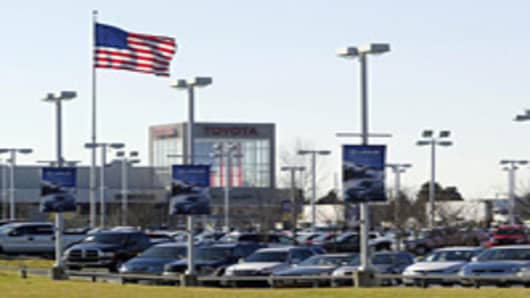As we wrap up this year, we are close to seeing U.S. auto sales fall to their lowest point in nine years. It has me wondering about what's spooking vehicle buyers? Is it the economy? Is this simply the natural ebb and flow of demand for new cars, trucks and SUV's? Why are some of my neighbors and friends putting off buying a new model?
CNW Marketing measures consumer confidence with its "Jitter index." On a 10 point scale, the index shows how consumer sentiment changes month to month. The most recent finding for September shows the Jitter index rising to 5.7, its highest point in roughly a year. Why?
Those surveyed are more concerned about the rising cost of food, the volatile stock market, home prices, and (surprise!) higher gas prices. Gee, imagine that, the cost of gas prices are a concern for car, truck, and SUV buyers.
I'm not surprised at the results. Look at pick-up truck and SUV sales. Pick-ups are down 5% and large SUV sales are down 4.6%.
Instead of buying those heavier models, it's not surprising to see that sport wagon and crossover utility vehicle sales have climbed 15.6 percent. This shift toward better fuel economy miles explains why the automakers rolled out so many hybrid models at the L.A. auto show and why we will see more in Detroit. It's also the reason GM believes it's new two-mode hybrids will sell well.
I'm not sure how much higher the "Jitter Index" will rise. But, I know that most executives in the industry are not expecting better sales until well into the second half of next year.
Questions? Comments? BehindTheWheel@cnbc.com



